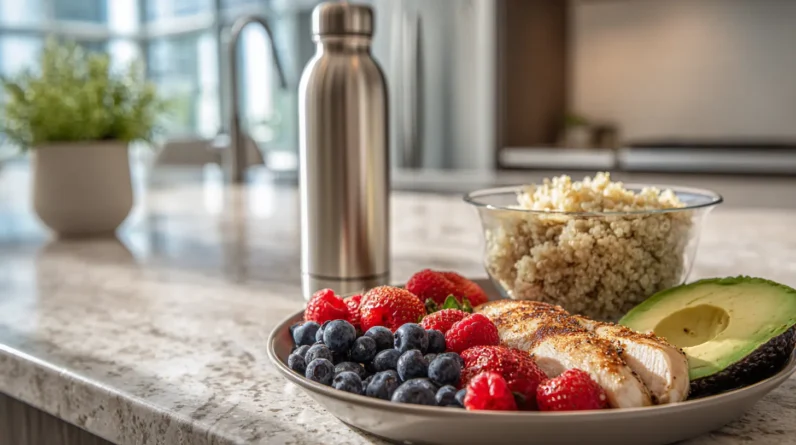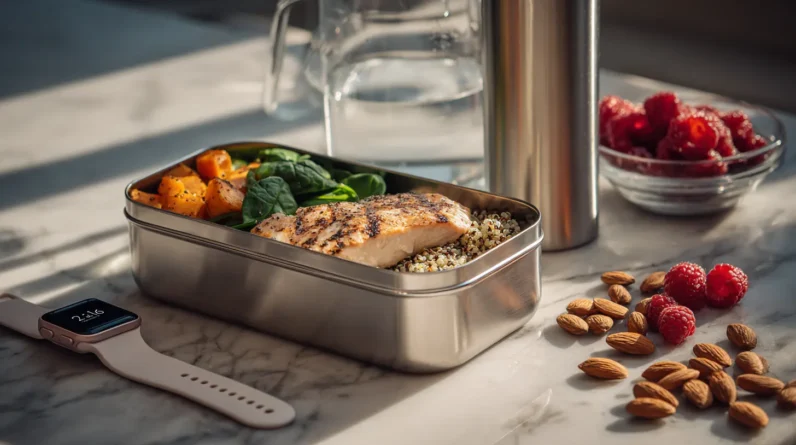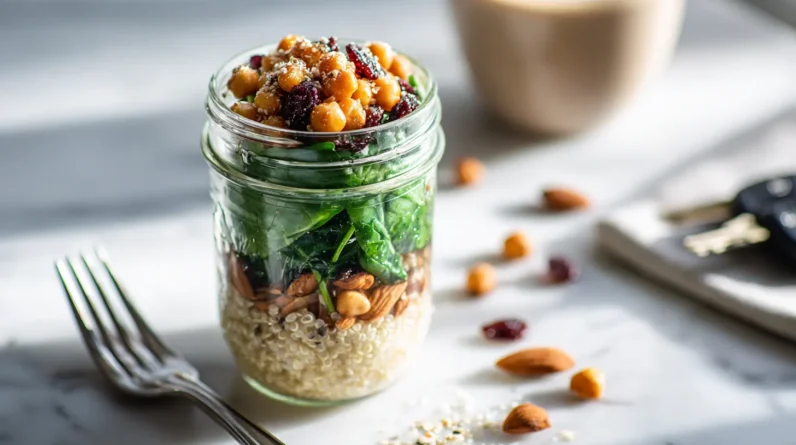
We’ve discovered that to battle bloat, we need to focus on what we eat and how we live. Eating berries, celery, and ginger, while avoiding sulfur-rich foods like broccoli, can make a big difference. It’s also essential we stay active and reduce stress to ease our digestive systems. By doing simple things like abdominal massages and identifying our trigger foods, we can greatly improve our comfort. Remember, if bloat persists, seeking medical advice is vital. We’re on a journey to understand our bodies better, and with a few adjustments, we can all experience less discomfort. There’s much more to explore in mastering our digestive health.
Understanding Bloating
Understanding bloating, a condition that affects up to a quarter of the population, is the first step in managing its uncomfortable symptoms through targeted dietary strategies. This digestive discomfort, marked by a full, tight feeling due to gas, can have a substantial impact on our daily activities.
Notably, women may notice an increase in bloating around their period, with an astonishing 75% reporting this symptom. By identifying specific triggers and implementing simple lifestyle changes and dietary adjustments, we can effectively alleviate these symptoms. Mastery in this area requires a nuanced understanding of our own bodies and the willingness to adapt our habits.
Through evidence-based, nutritional focus, and practical advice, we’re empowered to combat bloating and enhance our digestive comfort, making these adjustments an integral part of our routine for better overall well-being.
Common Bloating Triggers
Identifying common triggers plays a crucial role in lessening the discomfort of bloating, as various factors ranging from dietary choices to lifestyle habits can greatly impact our digestive health. Here are four major triggers:
1. Stress: It decreases gastric motility, contributing to bloating by slowing digestion.
2. Sedentary Lifestyle: This compresses digestive organs, leading to discomfort from slowed digestion.
3. Foods High in Sulfur: Vegetables like broccoli and cabbage can cause excessive gas and bloating.
4. Alcohol Consumption: Leads to inflammation, water retention, and digestive distress, exacerbating bloating.
Understanding these triggers allows us to devise dietary tips and lifestyle adjustments aimed at mitigating bloating, gas, and abdominal pain, enhancing our overall digestive comfort.
Foods That Alleviate Bloat
After exploring common bloating triggers, let’s now focus on how including specific foods into our diet can greatly ease this discomfort.
Berries, such as blueberries and strawberries, are rich in water and soluble fiber, which are essential for maintaining a healthy digestive system and reducing bloating.
Celery, abundant in water and insoluble fiber, supports digestion and alleviates bloating caused by gas.
Ginger, known for its digestive benefits, enhances digestion and minimizes gas formation.
Fennel seeds, acting as natural probiotics, speed up digestion and combat bloating.
To conclude, parsley serves as a natural diuretic that helps decrease water-related bloat, promoting digestive comfort.
Adding these foods can help address the underlying health issues contributing to gas and bloating, ensuring our digestive system operates smoothly.
Essential Lifestyle Adjustments
Implementing essential lifestyle modifications can greatly improve digestive health and combat bloating effectively. By focusing on enhancing our gut health through vital nutrients and targeted actions, we can alleviate abdominal discomfort and manage excess bloating fast.
1. Increase Physical Activity: Elevate gut motility to aid bowel movements and reduce gas.
2. Relax Your Body: Minimize stress to improve gastrointestinal function and lessen bloating.
3. Perform Abdominal Massages: Help food navigate the digestive tract, preventing buildup and discomfort.
4. Identify and Avoid Trigger Foods: Make dietary changes to avoid foods that cause excess gas and bloating.
Recognizing When to Seek Help
While minor bloating can often be managed with dietary adjustments and lifestyle changes, it’s important to recognize when it’s time to consult a healthcare professional. If bloating persists for more than a few days, we must seek medical attention to rule out underlying health issues. Severe abdominal pain or discomfort accompanying bloating demands a visit to a healthcare provider.
In addition, bloating, alongside other concerning symptoms, may signal the need for a medical evaluation. Those with a history of gastrointestinal issues should be particularly vigilant about seeking help for persistent bloating. Additionally, sudden onset bloating without an obvious cause warrants investigation by a healthcare professional.
Recognizing these signs and acting promptly ensures our health remains in check.
Conclusion
In steering the stormy seas of bloating, we’ve mapped a course through dietary adjustments and lifestyle modifications. By avoiding known triggers and embracing bloat-busting foods, we find ourselves sailing towards smoother waters.
Yet, it’s essential to remember that our bodies are unique vessels; what calms the waves for one may not for another. When the tempest refuses to subside, seeking professional guidance is our lighthouse, ensuring we navigate safely to the shores of comfort and health.







